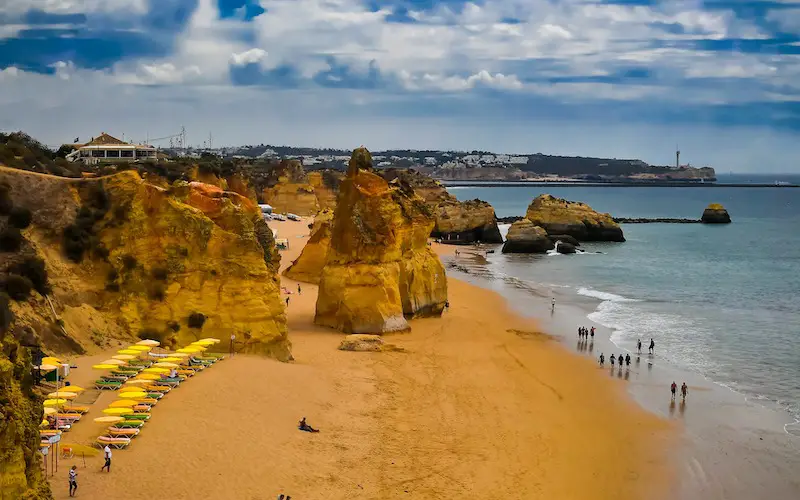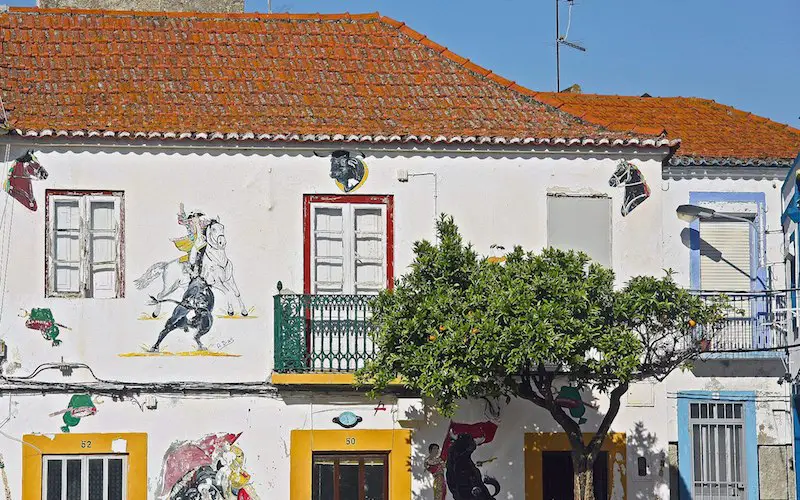Portugal is an amazing country where there is something for everyone! You can visit the bustling cities of Lisbon and Porto where you are sure to be thrown straight into the country’s amazing culture as well as doing some well needed retail therapy. Or perhaps you would prefer to travel to the south of the country to the Algarve region. Here, in places such as Portimao and Silves, you are sure to find golden sand beaches and feel the warmth of the Portuguese sun. If this sounds like your ideal place, why not take the next step and buy your own property in the country. In this article, you will find out the best way to go around buying property in Portugal so you can live your dreams and move to sunnier climes!

The first step to buying a property in Portugal is to find an estate agent. Don’t just settle for anyone as estate agents must hold a license and be registered so make sure your chosen estate agent has an AMI Number. This means that, when making sales, they use specific, approved documents when doing their jobs. The majority of estate agents in Portugal will be upfront and honest however, like anything, there are a small number that may try to take advantage of you so be very wary.
Once you are certain you wish to buy a property in Portugal, it is important that you also get a lawyer or solicitor to take care of your interests during the purchase process – don’t worry if you are unable to speak the language as there are many lawyers and solicitors in Portugal that can speak English. In addition, you are also able to give Power of Attorney if you’re unable to travel to the country in order to sign any documents. Furthermore, you’ll need a fiscal number or NIF number which you can get from the local tax office and you should also open a bank account in Portugal. Do all of this before starting on the contract.
There are two stages to the buying process. The first is the Promissory Contract which takes place between the buyer and the seller. This is a legally binding contract which is created by your chosen lawyer and must be signed on licensed premises or in front of a notary – these legal contracts can be created in both English and Portuguese. The contract will include details such as the legal names of both parties involved in the sale, the agreed price of the property and the amount of money paid as a deposit (usually between 10% to 25% of the overall property price).
When this is complete, the lawyer will complete the necessary checks for encumbrances or any available mortgages for the property. These checks will also include any planning restrictions, outstanding debts, charges or utility bills on the property and that the seller is the registered and legal owner of your chosen property. Furthemore, your lawyer will also confirm the property’s boundaries, rights of way and any restrictions on use if applicable.
Once this has all been completed, you will then move onto the second part of the purchase – the Escritura or the final deed. Here, the ownership of the property is passed onto you, the owner. Just like the Promissory Contract, the Escritura is signed in front of the notary. The final contract is then sent to the Land Registry but the notary will issue you with your own stamped copy of the Escitura. It is important to note that there is a fee for the Land Registry. In addition to this, you will need to register with the tax office as well as the various utilities companies.
It’s important to know how much it will cost to buy a property in Portugal. The cost of a property is made up of the initial price you will pay to purchase the property as well as the closing costs which are usually around 6% to 10% of the overall price.
When buying a property in Portugal, the largest percentage of your money will go to the transfer tax which, when paid on second-hand properties costing more than €92,407, will be on a sliding scale of around 2% to 8%. Also, there is a stamp duty cost which sits at a fixed rate of 0.8%. You will also have to pay money towards the cost of the notary, administration and registration fees which should be around 1.5% and 2,5% and you will also have legal fees to pay which are usually between 1% and 2% of your overall purchase price of the property. You don’t need to worry about any costs of the estate agent as these are covered by the seller of your chosen property.
So to conclude, the process of buying a property in Portugal can be difficult, confusing and expensive. However, hopefully this article will make the process easier and more cost effective for you. Remember, always be vigilant during this process to stop you getting involved in any scams from so-called ‘estate agents’ or dodgy sellers. A property in Portugal is sure to be something of dreams and a perfect escape to the sun.
If you enjoyed this article you might also like to read about Buying a Portugal Rural Property



4 thoughts on “Buying Property in Portugal”